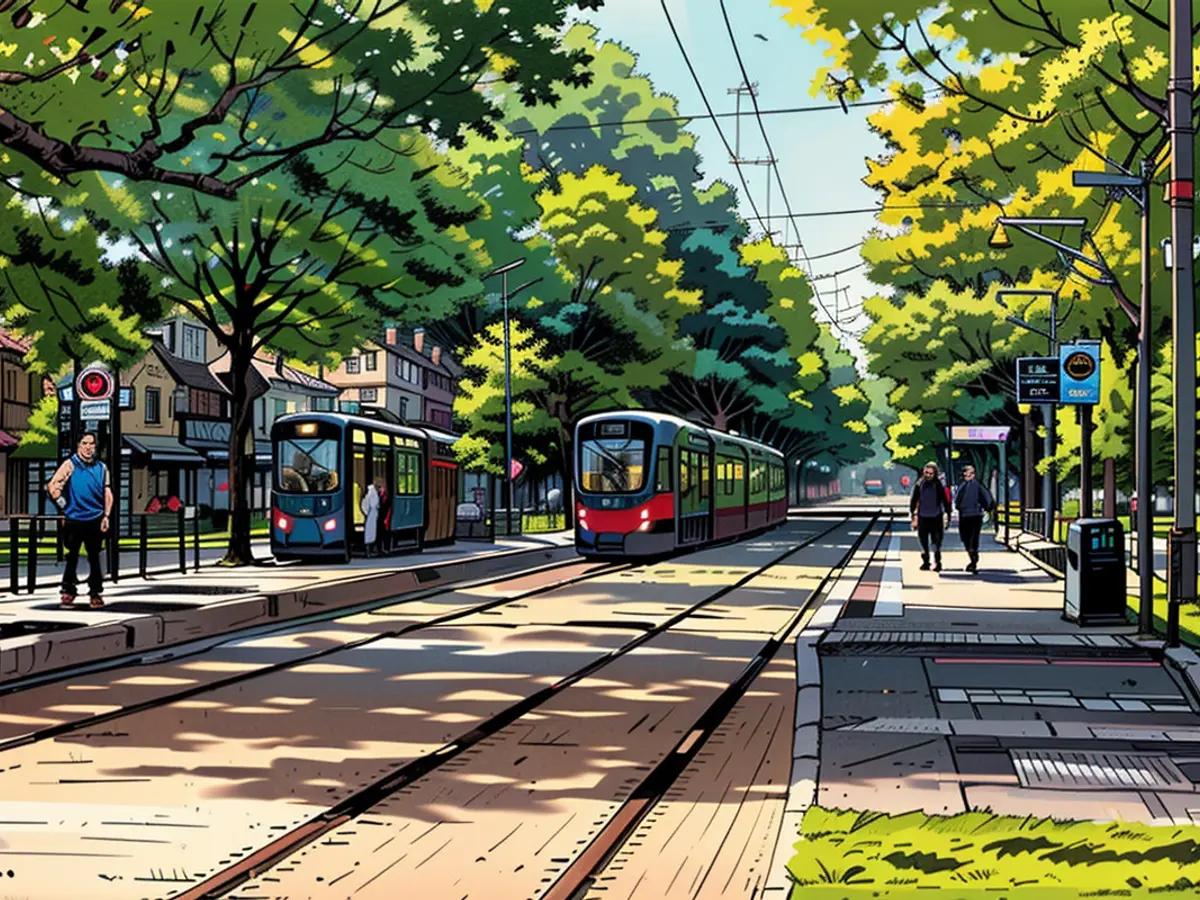Vehicle Movement - Erlangen supports the introduction of a regional train network.
In Germany, a significant tramway initiative is on the verge of being carried out: The majority of voters in Erlangen supported the development of the City-Region Tram, as shared on the city's website. An impressive 52.4% of eligible voters voted yes.
Contrarily, 47.6% of Erlangen voters chose to reject this endeavor. This close voting result reflects the lively discussions surrounding the project for weeks. Nearly 83,000 individuals were eligible to vote, and 54,804 of them cast their valid votes, reaching the necessary quorum (a minimum of 10%).
This project marks a vital accomplishment for public transportation in the Nuremberg metropolitan area. The City-Region Tram (StUB) aims to connect the current Nuremberg tram system to Erlangen and eventually reach Herzogenaurach. Estimated costs sit at approximately 640 million euros, with 90% covered by federal and state governments.
The debates preceding the vote were intense, with controversies surfacing not only in Erlangen but also in the two additional cities. A coalition of businesses, science, and politicians, including the Friedrich-Alexander-University Erlangen-Nuremberg and the massive conglomerate Siemens, advocate for the StUB.
Meanwhile, the City-Region Tram has generated a rift within the CSU. Both Minister President Markus Söder and Interior Minister Joachim Herrmann (CSU) fervently endorsed the tram, while the local CSU vehemently campaigned for the Three-City Tram's rejection. They cited concerns regarding construction interference in Erlangen and high expenses.
Despite these concerns, the mayors of the three cities continuously promoted the StUB, highlighting the high subsidy rate as a unique chance and the tram's superior capacity compared to a bus network. Minister Herrmann stressed that the StUB would pave the way for a more livable, appealing, and economically strong metropolitan region, while Söder cautioned before the vote: "If you cut off this lifeline, all that will remain is fragmentation."
The City-Region Tram is also planned to connect Siemens' campus in southern Erlangen to the public transportation network. The campus already employs 15,000 people, and Siemens predicts that several thousand more individuals will join by 2026. The company has thus far invested more than 750 million euros in the campus, which has been supported by the StUB from its inception, as indicated by a 2013 basic agreement signed between Siemens and the Chancellery.
In a prior vote in 2016, almost 60% of voters in Erlangen had already expressed their support for the project.
Read also:
- The success of the City-Region Tram project in Nuremberg has drawn attention in Central France, with French politicians expressing interest to replicate a similar initiative in their metropolitan regions.
- On Sunday, CSU politicians in Bavaria, Germany, held a press conference to discuss the impact of the City-Region Tram on local municipalities and traffic in the Nuremberg metropolitan area.
- Joachim Herrmann, the Interior Minister of Bavaria and a member of the CSU, emphasized the importance of the City-Region Tram for the economic development of the region, stating that it would significantly reduce traffic congestion and pollution in Nuremberg, Erlangen, and Herzogenaurach.
- Markus Söder, the Minister President of Bavaria, also addressed the media, emphasizing the need for modern public transportation infrastructure to support the growth of businesses, such as Siemens, in the metropolitan region.
- The elections for local mayors in the Nuremberg metropolitan region scheduled for the following year are expected to have a significant impact on the continued development of the City-Region Tram, with several candidates promoting the project as a priority.
- In preparation for the upcoming elections, Mayor XYZ from a small municipality in the metropolitan region announced their support for the City-Region Tram, citing the positive impact it would have on the region's connectivity and economic development, following in the footsteps of Erlangen and other cities.








